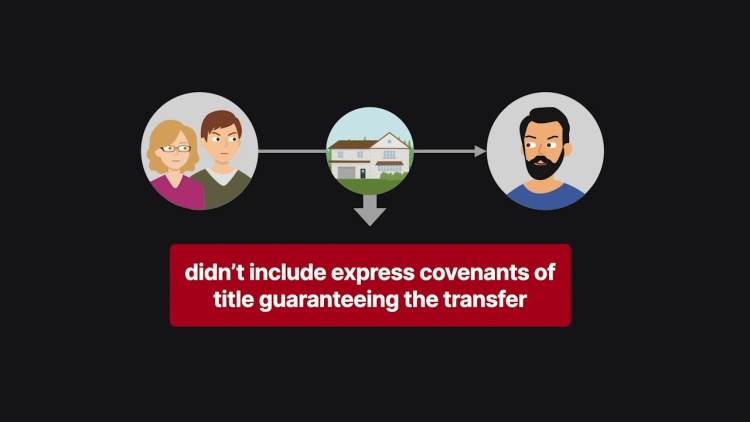St. Paul Title Ins. Corp. v. Owen
Alabama Supreme Court
452 So.2d 482 (1984)
- Written by John Yi, JD
Facts
Albert Owen executed a warranty conveying the subject property to his brother and sister-in-law, James and Cheryl Owen. The deed expressly warranted to James, Cheryl, “and their heirs and assigns” that he was “seized of an indefeasible estate”; had the right to convey; would guarantee its quiet enjoyment; that he, his heirs, executors and administrators would defend against any claims against the conveyed title; and that the property was free from all liens and encumbrances. James and Cheryl later conveyed the property to Carlisle through a deed that stated they “grant, bargain, sell, and convey” the property to Carlisle but did not expressly make the covenants of title. Carlisle later mortgaged the property in favor of GECC Financial Services to obtain a $17,000 loan. St. Paul Title Insurance Company (plaintiff) insured the title. When Carlisle defaulted on the mortgage payments, GECC attempted to foreclose on the property. But GECC was unable to do so because the court found that Carlisle had no ownership of the property. GECC then sued St. Paul to recover the loan amount in accordance with the title insurance policy. St. Paul then sued Albert, James, and Cheryl Owen (defendants) for breach of the covenants of title contained in the deeds executed by them. The trial court held for the defendants. St. Paul appealed.
Rule of Law
Issue
Holding and Reasoning (Maddox, J.)
What to do next…
Here's why 907,000 law students have relied on our case briefs:
- Written by law professors and practitioners, not other law students. 47,100 briefs, keyed to 996 casebooks. Top-notch customer support.
- The right amount of information, includes the facts, issues, rule of law, holding and reasoning, and any concurrences and dissents.
- Access in your classes, works on your mobile and tablet. Massive library of related video lessons and high quality multiple-choice questions.
- Easy to use, uniform format for every case brief. Written in plain English, not in legalese. Our briefs summarize and simplify; they don’t just repeat the court’s language.





